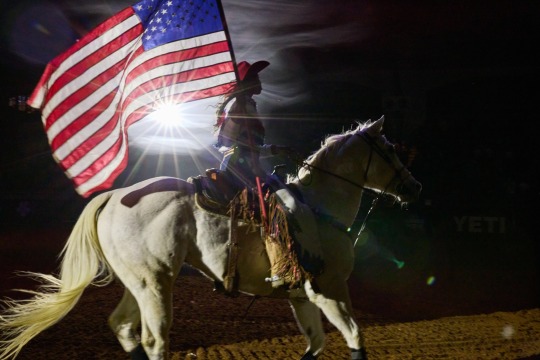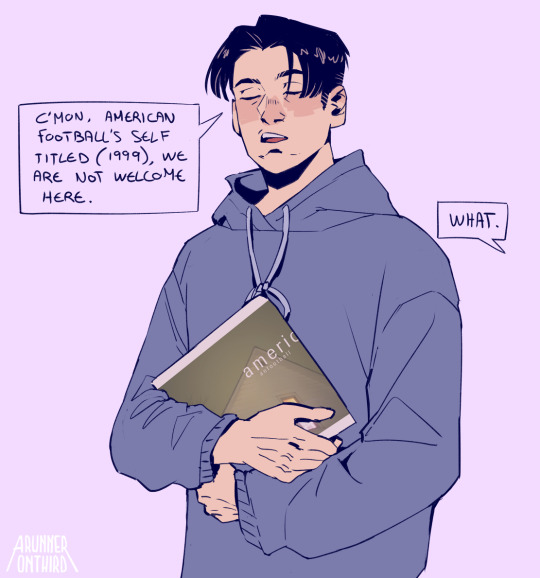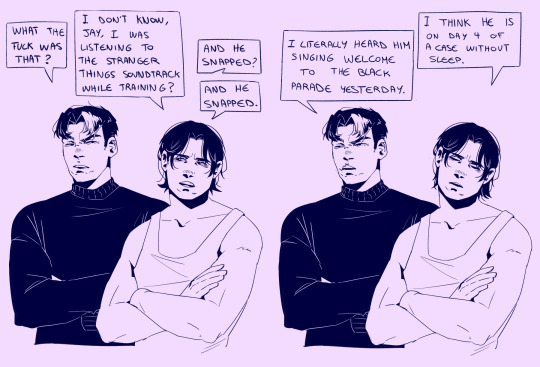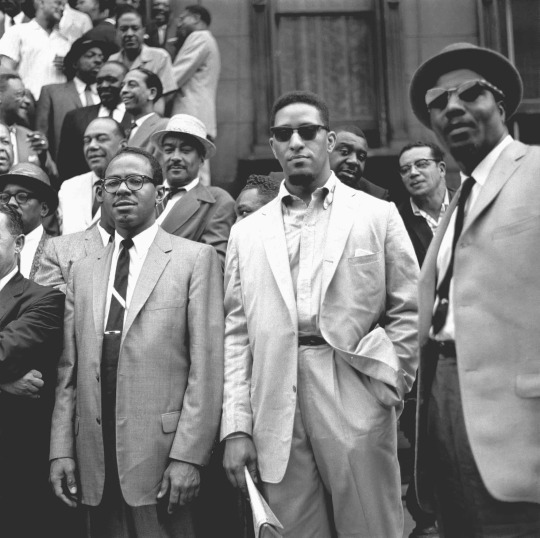#Black American Music
Explore tagged Tumblr posts
Text
“This ain’t a Country album. This is a “Beyoncé” album.”
I understand why she said this! Because the way it seems she created a completely new genre with ‘Cowboy Carter’! The Country is there (and all the elements) and there’s some Blues, Folk, Soul, Zydeco, Bluegrass, a lil Rock, Gospel and Opera and then some (all genres with Black (Black) American origins). Almost like she opened a new sonic portal while helping to reclaim the genre made by Black Americans.
First off — the album cover art. She pays homage to a long-standing Black American Southern tradition of Houston rodeo and rodeo queens. Carrying our country’s flag…the imagery is signifying to her being a Black American woman. Who she is.




The album cover alone set the tone for what she presented with act ii. [and the photographer is Blair Caldwell, a fellow Black Texan, who has such an eye for capturing beauty. all his photographs are visually pleasing].
[Even the promo - the track list design is a nod & historical reference to Black American culture via The Chitlin Circuit promotional posters. I love it. Made my little graphic art heart smile. The nostalgia of it.]

From the opening track title and lyrics and later on within other songs, she wove her ancestral claiming to America with so much pride. Pride for our country and our flag that we absolutely should have.
Then to have Ms. Linda Martell, the trailblazing Black pioneer & legend in the genre who broke many barriers, be a part of this album was so reverent. (Especially her spoken word throughout that spoke to the way that she and Beyoncé have had to navigate this music industry. When their presence wasn’t well-received, in the very genre we created, they set out to move in a “non-traditional” way). They themselves are the embodiment of unconventional. Ms. Martell rightfully receiving her flowers at the golden age of 82 is harmonious!

Every part of act ii has made people research and discover. The same way act i did. Gotta love a good educational experience through music. (btw—the mention of Zydeco had me hyped).
Having Rhiannon Giddens on instrumentation (along with other background Black musicians and I’m sure Black vocalists) and sharing this musical journey with Tanner Adell, Brittney Spencer, Tiera Kennedy, Reyna Roberts, Willie Jones and Shaboozey — other young Black women and Black men in the genre…all of this Black fellowship made me so happy.



Just sooo much honoring throughout it all. Lots of love poured into it.
Everything is resonate. Connecting. With purpose.
Her voice, her musicality, the note choices, the lyrics, the song titles and the spelling of them, the arrangements.
It’s fun and beautiful.
It sounds amazing.
A beautiful tribute to her roots.
Bravo Beyoncé!
#Beyoncé#Cowboy Carter#Linda Martell#Tanner Adell#Brittney Spencer#Tiera Kennedy#Reyna Roberts#Willie Jones#Shaboozey#Blair Caldwell#Black music#Black culture#Black American culture#Black American music#country music#go stream Cowboy Carter#go buy Cowboy Carter#and go stream and buy all the artists she featured
71 notes
·
View notes
Text
#russell westbrook#the pop out#kendrick lamar#demar derozan#akademics#black music month#hip hip#black american music
8 notes
·
View notes
Text
I'll always love you, and want you too. How much, you'll never know. Most of all, I miss you so, I'll always love you. I miss you so.
The first post on this blog will be for the king of 20th century pop music— Nat King Cole. Nat King Cole was the first and now longest-running jazz musician to hold a special place in my heart, since my great grandma was his biggest fan.
Nat King Cole exists in most memories as the singer to The Christmas Song (chestnuts roasting on an open fiiire), but less people know he's a pianist as well, even jazz musicians. When I show people his work with the Nat King Cole Trio, they ask me who the pianist is and I still get responses of surprise that they "didn't know he also played piano." I reply with "he was a pianist first and a singer second, too."
It's a shame, really. His gentle style of soloing moves me in ways that the most technically skilled pianists in the world couldn't achieve, just because of the emotion it can convey. His careful, floating comping makes a ballad so listenable, and he was so worthy of that recognition from the jazz community and from the general public.
At the same time, I understand why his voice *became* Nat King Cole. Listening to Nat King Cole makes you feel less alone, like you can so easily relate to what he's singing. His voice convinces me that what he's singing is true, even when he didn't personally experience whatever exactly he was singing about, and even if I haven't experienced what he's singing about. His voice feels like reassurance, like a nice cool pillow to rest your head on.
#ballad songs#jazz ballad#jazz ballads#jazz#jazz music#bam#black american music#american music#mid century pop#spotify#nat king cole#nat king cole trio#vintage music#ballad#jazz piano#jazz pianist#jazz vocalist#capitol records
6 notes
·
View notes
Text
Nicholas Payton: Redefining the Boundaries of Jazz
Introduction: Nicholas Payton, a virtuoso trumpeter, composer, and bandleader, has firmly established himself as one of the most innovative and controversial voices in contemporary jazz. Known for his exceptional technical prowess and his fierce dedication to evolving the art form, Payton has redefined what it means to be a jazz musician in the modern era. His wide-ranging artistic vision and…
#Afro-Caribbean Mixtape#Bitches#Black American Music#Cab Calloway#Clifford Brown#Doc Cheatham#Doc Cheatham & Nicholas Payton#Ellis Marsalis#Elvin Jones#From This Moment#Gumbo Nouveau#Harry Connick Jr.#Herbie Hancock#Jazz History#Jazz Trumpeters#Joe Henderson#John Coltrane#Lee Dorsey#Lee Morgan#Louis Armstrong#Miles Davis#Nicholas Payton#Numbers#Professor Longhair#Roy Haynes#Trey Anastasio#Walter Payton#Wynton Marsalis
1 note
·
View note
Text
Black Americans: The Founders of Rock and Roll Music in the United States
Rock and roll (often written as rock & roll, rock-n-roll, rock ‘n’ roll, rock ‘n roll, or rock n’ roll with both Rs usually capitalized) is a genre of popular music that evolved in the United States during the late 1940s and early 1950s. It originated from African-American (Black American) music such as jazz, rhythm and blues, boogie-woogie, electric blues, gospel, jump blues, as well as country…

View On WordPress
#African History#African music#African-American#Black American History#Black American music#Rock and roll
0 notes
Text
"Brazilian hand games and American hand games!!!! Realizing that the art of hand games comes from Africa! I never thought about it before. It was just embedded in our childhood."
"The collective consciousness is real"
"My goodness. We played this in Nigeria too."
There's a documentary with @jamilawoods called "Black Girls Play" about the history of handclap games in the US and their importance in the Black community. And a book before it called The Games Black Girls Play, by Kyra D. Gaunt.
#black culture#brazillian culture#black people#black is beautiful#music#africa#childhood#black history#black women#brazil#africans#african american#black american culture#black excellence#black lives matter#blacklivesmatter#handclap games#black films#documentary#books#books and reading
2K notes
·
View notes
Video
...JaZz 🎼🎶🎷🎹🎺❤️
.
#tmwfte#the man who fell to earth#limited series#chiwetel ejiofor#naomie harris#clarke peters#annelle olayele#black music#black music culture#call and response#improvisation#blues#jazz#soul#funk#hip hop#black american music#soul music#soul soothing
290 notes
·
View notes
Text



timothy "i have better taste in music than u" drake wayne, ceo
#i dont really have an explanation other than that this is funny in my head#and that tim sometimes reminds me of a friend of mine whos an absolute music snob#hes is exactly this brutal#also american football is a great album but never fails to depress me#welcome to the black parade is art obviously#tim drake#dick grayson#jason todd#robin#red robin#nightwing#red hood#batman#dc comics#my art#ladies. gentlemen. you have eaten well.
6K notes
·
View notes
Text
Clarinetist Doreen Ketchens playing for her grandson.
#jazz#clarinet#aesthetic#Doreen Ketchens#american history#american music#black women#black beauty#aes
782 notes
·
View notes
Text

We need more pictures of Michael with Black folks
#michael jackson#mj#king of pop#black people#black culture#black music#african american#1980s#80s#rare#singer#icon#legend#r.i.p.#photo#sbrown82
1K notes
·
View notes
Text





“They all had royal names…”
Billie “Lady Day” Holiday
William James "Count" Basie
Edward Kennedy "Duke" Ellington
Nat King Cole
Queen Latifah
“Jazz royalty is a term encompassing the many jazz musicians who have been termed as exceptionally musically gifted and informally granted honorific, "aristocratic" or "royal" titles as nicknames. The practice of affixing honorific titles to the names of jazz musicians goes back to New Orleans at the start of the 20th century, before the genre was commonly known as "jazz".”
“Rap has its roots in jazz. Bebop, scatting, rap…they’re all based on syncopated rhythms.” Queen Latifah also is included in the “jazz royalty” because of this ^^
+other noted artists:





was rewatching Hangin’ With Mr. Cooper and in season 1, episode 11, this was mentioned about the royal names and rap’s jazz roots!
*In 1970, Hanna was given an honorary knighthood by President William Tubman of Liberia in recognition of concerts he played in the country to raise money for education. Thereafter, Hanna was often known as "Sir Roland Hanna.”
#Black Americans#Black American culture#Billie Holiday#Eleanora Fagan#Count Basie#Duke Ellington#Nat King Cole#Nathaniel Adams Coles#Queen Latifah#Dana Owens#Black American music#jazz#Roland Hanna#Lester Young#rap#Black American music genres#music#royals#Black American Royalty#aristocrat#jazz musicians#jazz music#rapper#rap music
8 notes
·
View notes
Text
8 notes
·
View notes
Text

"TOM WAITS (TATTOO)" GREG GORMAN | HOLLYWOOD, 1979 [archival pigment print | 40 x 50"]
#tom waits#greg gorman#portrait#70s#black and white#monochrome#film photography#analog#hollywood#contemporary art#american#photography#music#u
452 notes
·
View notes
Text
I know I've only posted once on here before, but I need to reinvent how I write on this blog. I've got so many drafts saved up for this blog, but they never see the light of day because I'm always too scared that it won't do justice to the song or it's too long or my writing is too boring, etc.
I liked my first post a lot, but I don't know if I can do *all* that for every single song if I want to post more frequently. Might try to do something a little bit simpler? Maybe focus more on just the song itself and less the artist/album/bts? We'll see. Whatever gets the meanings across in a somewhat timely manner. I just wanna communicate this love to the world so they can share it too. 
1 note
·
View note
Text

Sonny Rollins with Benny Golson and Thelonious Monk, Harlem, Art Kane, 1958
#sonny rollins#thelonious monk#benny golson#art kane#photography#vintage photography#vintage#black and white photography#1950s#harlem#new york#new york city#music#jewish#portrait#celebrity#jazz#american#1958#100 notes#250 notes
560 notes
·
View notes
Text
Ms. Janet Jackson starring in a Japanese cellphone commercial Tu-Ka in 1993

#black tumblr#janet jackson#music#black history#black women#black art#black fashion#black hair#classic#nostalgia#theafroamericaine#artists on tumblr#musician#songs#vintage#photography#hip hop#culture#black culture#black girl things#black girl aesthetic#black girls of tumblr#black girl moodboard#black girl beauty#black girl magic#america#jackson 5#michael jackson#the jacksons#black americans
222 notes
·
View notes